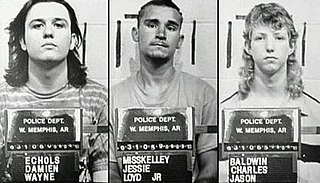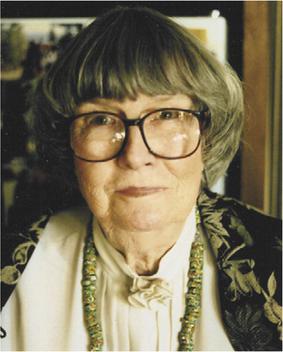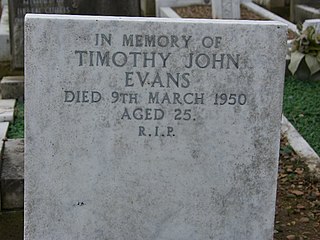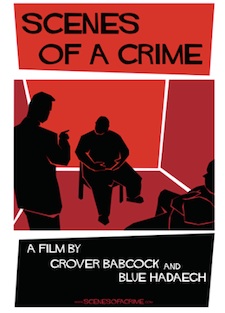Related Research Articles

The West Memphis Three are three freed men convicted as teenagers in 1994 of the 1993 murders of three boys in West Memphis, Arkansas, United States. Damien Echols was sentenced to death, Jessie Misskelley Jr. to life imprisonment plus two 20-year sentences, and Jason Baldwin to life imprisonment. During the trial, the prosecution asserted that the juveniles killed the children as part of a Satanic ritual.

Brainwashing is the controversial idea that the human mind can be altered or controlled against a person's will by manipulative psychological techniques. Brainwashing is said to reduce its subject's ability to think critically or independently, to allow the introduction of new, unwanted thoughts and ideas into their minds, as well as to change their attitudes, values, and beliefs.

Margaret Thaler Singer was an American clinical psychologist and researcher with her colleague Lyman Wynne on family communication. She was a prominent figure in the study of undue influence in social and religious contexts, and a proponent of the brainwashing theory of cults.
In law, a witness is someone who, either voluntarily or under compulsion, provides testimonial evidence, either oral or written, of what they know or claim to know.
The term large-group awareness training (LGAT) refers to activities—usually offered by groups with links to the human potential movement—which claim to increase self-awareness and to bring about desirable transformations in individuals' personal lives. LGATs are unconventional; they often take place over several days, and may compromise participants' mental wellbeing.
Forensic psychology is the application of scientific knowledge and methods to assist in answering legal questions that may arise in criminal, civil, contractual, or other judicial proceedings. Forensic psychology includes research on various psychology-law topics, such as: jury selection, reducing systemic racism in criminal law, eyewitness testimony, evaluating competency to stand trial, or assessing military veterans for service-connected disability compensation. The American Psychological Association's Specialty Guidelines for Forensic Psychologists reference several psychology sub-disciplines, such as: social, clinical, experimental, counseling, and neuropsychology.

A miscarriage of justice occurs when an unfair outcome occurs in a criminal or civil proceeding, such as the conviction and punishment of a person for a crime they did not commit. Miscarriages are also known as wrongful convictions. Innocent people have sometimes ended up in prison for years before their conviction has eventually been overturned. They may be exonerated if new evidence comes to light or it is determined that the police or prosecutor committed some kind of misconduct at the original trial. In some jurisdictions this leads to the payment of compensation.
Gísli Hannes Guðjónsson, CBE is an Icelandic-British academic, educator, forensic psychologist and former detective. He is Emeritus Professor at the Institute of Psychiatry of King's College London and a Professor in the Psychology Department at Reykjavik University. Gísli is an internationally renowned authority on suggestibility and false confessions and is one of the world's leading experts on false memory syndrome.
A false confession is an admission of guilt for a crime which the individual did not commit. Although such confessions seem counterintuitive, they can be made voluntarily, perhaps to protect a third party, or induced through coercive interrogation techniques. When some degree of coercion is involved, studies have found that subjects with highly sophisticated intelligence or manipulated by their so-called "friends" are more likely to make such confessions. Young people are particularly vulnerable to confessing, especially when stressed, tired, or traumatized, and have a significantly higher rate of false confessions than adults. Hundreds of innocent people have been convicted, imprisoned, and sometimes sentenced to death after confessing to crimes they did not commit—but years later, have been exonerated. It was not until several shocking false confession cases were publicized in the late 1980s, combined with the introduction of DNA evidence, that the extent of wrongful convictions began to emerge—and how often false confessions played a role in these.
In the law of criminal evidence, a confession is a statement by a suspect in crime which is adverse to that person. Some secondary authorities, such as Black's Law Dictionary, define a confession in more narrow terms, e.g. as "a statement admitting or acknowledging all facts necessary for conviction of a crime", which would be distinct from a mere admission of certain facts that, if true, would still not, by themselves, satisfy all the elements of the offense. The equivalent in civil cases is a statement against interest.
The Thurston County ritual abuse case was a 1988 case in which Paul Ingram, county Republican Party Chairman of Thurston County, Washington, and the Chief Civil Deputy of the Sheriff's department, was accused by his daughters of sexual abuse, by at least one daughter of satanic ritual abuse, and later accused by his son in 1996 of abusing him between the ages of 4 and 12.
The APA Task Force on Deceptive and Indirect Methods of Persuasion and Control (DIMPAC/DITPACT) was formed at the request of the American Psychological Association (APA) in 1983. The APA asked Margaret Singer, a leading theorist in cults and coercive persuasion, to chair a task force to "expose cult methods and tactics". Some examples that led to the task force's creation were the Manson family murders, Patty Hearst kidnapping, and the Jonestown massacre.
Jesse Stephen Miller was a psychologist and psychodynamic psychotherapist.
Saul Kassin is an American academic, who serves as a professor of psychology at the City University of New York's John Jay College of Criminal Justice and Massachusetts Professor Emeritus of Psychology at Williams College in Williamstown, Massachusetts.

Dick Anthony was a forensic psychologist noted for his writings on the validity of brainwashing as a determiner of behavior, a prolific researcher of the social and psychological aspects of involvement in new religious movements.
Memory implantation is a technique used in cognitive psychology to investigate human memory. In memory implantation studies researchers make people believe that they remember an event that actually never happened. The false memories that have been successfully implanted in people's memories include remembering being lost in a mall as a child, taking a hot air balloon ride, among other things which could be both good or bad.

Scenes of a Crime is a documentary film that focuses on the case of Adrian P. Thomas who was the subject of nearly 10 hours of interrogation by Troy, New York police, culminating in a controversial confession and high profile murder trial. The film won multiple festival awards, a Gotham Award for "Best Film Not Playing At Theater Near You," played theatrically and was broadcast nationally. Reviews of the film were highly favorable.
Adrian P. Thomas was a father of seven children living in Troy, New York, when, in September 2008, his four-month-old son died. A preliminary medical examination indicated that the infant died from head trauma. The police interrogated Thomas for nearly 10 hours during which he confessed to throwing his son on the bed three times. The entire interrogation was videotaped. He was charged with second-degree murder, found guilty, and sentenced to 25 years to life in prison.
The Confession Tapes is a true crime television documentary series that presents several cases of possible false confessions leading to murder convictions of the featured people. In each case, the documentary presents alternate views of how the crime could have taken place and features experts on false confessions, criminal law, miscarriages of justice and psychology. The series, produced and distributed by Netflix, became available to all Netflix subscribers on September 8, 2017. Critics praised the series, likening it to other Netflix true crime documentaries, such as The Keepers and Making a Murderer.
The Center on Wrongful Convictions youth clinic, part of the Center on Wrongful Convictions within Northwestern University Pritzker School of Law's Bluhm Legal Clinic, is a non-profit legal clinic that represents children thought to have been convicted of crimes they did not commit. Co-founded by Northwestern Law Professor Steven Drizin and directed by Professor Laura Nirider, it was the first organization in the world to focus exclusively on wrongfully convicted children. Through its research, scholarship, teaching, and advocacy, the Center has developed expertise in the problem of false confessions, police interrogation practices, and constitutional doctrine governing the interrogation room.
References
- 1 2 "Personal home page at Berkeley University". Archived from the original on March 5, 2008. Retrieved 2007-01-05.
{{cite web}}: CS1 maint: bot: original URL status unknown (link) - ↑ Public Defender Awards, Florida Public Defender Association, Craig Stewart Barnard Award
- ↑ Lies of the Mind: Repressed-memory therapy is harming patients, devastating families and intensifying a backlash against mental-health practitioners, Time Magazine, 29 November 1993, Leon Jaroff
- ↑ True Confessions?, Time Magazine , December 12, 2005.
A 2002 study from Northwestern University showed that 59% of all miscarriages of justice in homicide investigations in Illinois—where a year later Governor George Ryan commuted all death sentences—involved false confessions. But despite such evidence, few confessions are ever thrown out. According to Richard J. Ofshe, a social psychologist at the University of California, Berkeley, and an expert in false confessions, only recently have juries been allowed to hear testimony about the phenomenon, which can occur as a result of coercion, exhaustion or mental impairment. The juries in the Norfolk trials were not among those. Many experts say the solution is to require police to videotape all interrogations and confessions of suspects in capital cases, as is the law in Minnesota, Illinois, Alaska and Maine. - ↑ "Department of Sociology, University of California Berkeley". Archived from the original on 2008-03-05. Retrieved 2007-01-05.
- ↑ "Curriculum Vitae". Archived from the original on 2008-03-05. Retrieved 2007-01-05.
- 1 2 "Frank Fuster case: Ofshe testimony, affidavit, credentials, honors". Archived from the original on 2013-01-04.
I hereby certify that the statements I have made herein are true and accurate to the best of my knowledge, information and belief. I am aware that if I have made any statement, knowing or believing it to be false, I am subject to the penalties of perjury.
- ↑ State of Florida vs. David Onstott [ permanent dead link ], Circuit Court of Thirteenth Judicial District, CV attached as official part of court record.
- ↑ John Simon Guggenheim Archived 2008-09-22 at the Wayback Machine , Memorial Foundation Of Fellows Page.
Richard J. Ofshe, Associate Professor of Sociology, University of California, Berkeley: 1973. - ↑ Berkeley Gazette, Roy Dorcus Award, Richard Ofshe.
- ↑ "Footnotes" (PDF). 7 (5). The American Sociologist. 1979-05-01: 12. Retrieved 2008-04-22.
{{cite journal}}: Cite journal requires|journal=(help) - ↑ Barbassa, J (2005-01-25). "Jury selection to begin in multiple murder and sexual abuse case". Associated Press.
- ↑ Simakis, A (2006-08-13). "Death row doubts /Lies put man on death row, men say". Archived from the original on 2008-06-29. Retrieved 2007-01-06.
- ↑ Three Men to Seek Clemency in '97 Rape and Slaying in Norfolk, November 10, 2005, The Washington Post , Tom Jackman.
"Four innocent servicemen are languishing in prison for no reason, other than expediency," said Richard J. Ofshe, a California sociologist and expert in false confessions. "If they were being held by a foreign government, we would send in the Army to get them out." - ↑ Suderman, Alan; Richer, Alanna Durkin (3 December 2018). "Settlement reached in infamous 'Norfolk 4' case". Navy Times. Associated Press. Retrieved 6 July 2019.
- ↑ "Will New Evidence Give Marty Tankleff A Second Chance?", March 11, 2005, CBS, 48 Hours.
- ↑ "Grounds for Appeal?", The Austin Chronicle, June 15, 2001, by Jordan Smith
Quote: Judge Lynch also severely limited the testimony of defense expert witness Dr. Richard Ofshe, a social psychologist who specializes in police interrogation techniques and how they can create false confessions when used "improperly." Lynch said the judgment of whether Springsteen's confession was coerced was the jury's to make. However, Ofshe said he sought only to offer information that would help the jurors make their evaluation. - ↑ Wright, L (1994). Remembering Satan: A case of recovered memory and the shattering of an American family . Knopf. pp. 134–146. ISBN 0679431551.
- ↑ Ofshe RJ (July 1992). "Inadvertent hypnosis during interrogation: false confession due to dissociative state; mis-identified multiple personality and the Satanic cult hypothesis". Int J Clin Exp Hypn. 40 (3): 125–156. doi:10.1080/00207149208409653. PMID 1399152.
- ↑ Olio, K; Cornell W (1998). "The Facade of Scientific Documentation: A Case Study of Richard Ofshe's Analysis of the Paul Ingram Case". Psychology, Public Policy, and Law. 4 (4): 1182–1197. doi:10.1037/1076-8971.4.4.1182.
- ↑ "The Last Victim". National Review . 2018-08-23.
- ↑ Steel, Fiona. "The West Memphis 3." Court TV. 17 March 2006 Crime Library, Notorious Murders Archived 2014-03-14 at the Wayback Machine .
- ↑ APA Brief in the Molko Case, from CESNUR website, [APA later withdrew the organization from the brief], 1987
[t]he methodology of Drs. Singer and Benson has been repudiated by the scientific community, that the hypotheses advanced by Singer were little more than uninformed speculation, based on skewed data and that "[t]he coercive persuasion theory ... is not a meaningful scientific concept. - ↑ Case No. 730012-8, Margaret Singer, et al., Plaintiff v. American Psychological Association, et al., Defendants
"This case, which involves claims of defamation, frauds, aiding and abetting and conspiracy, clearly constitutes a dispute over the application of the First Amendment to a public debate over matters both academic and professional. The disputant may fairly be described as the opposing camps in a longstanding debate over certain theories in the field of psychology. The speech of which the plaintiff's complain, which occurred in the context of prior litigation and allegedly involved the "fraudulent" addition of the names of certain defendants to documents filed in said prior litigation, would clearly have been protected as comment on a public issue whether or not the statements were made in the contest of legal briefs. The court need not consider whether the privilege of Civil Code 47 (b) extends to an alleged interloper in a legal proceeding. Plaintiffs have not presented sufficient evidence to establish any reasonable probability of success on any cause of action. In particular Plaintiffs cannot establish deceit with reference to representations made to other parties in the underlying lawsuit. Thus Defendants' Special Motions to Strike each of the causes at action asserted against them, pursuant to Code of Civil Procedure 425.16 is granted." - ↑ Allen. Charlotte, Brainwashed! Scholars of Cults Accuse Each Other of Bad Faith, December 1998. Available online